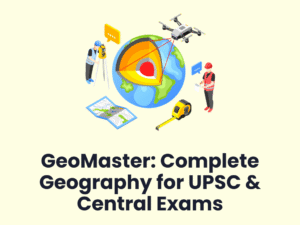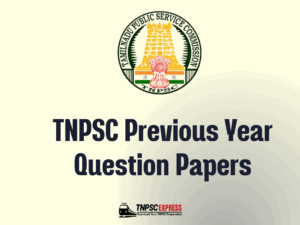Polity 360° Mastery – UPSC, State PSC & SSC Ready
- Description
- Curriculum
- Reviews
- Grade

⚖️ Polity – Topic Overview
The Indian Polity section plays a vital role in all TNPSC exams — Group I, II, IIA, IV, and VAO. It tests a candidate’s understanding of the Indian Constitution, governance systems, citizen rights, and administrative frameworks. Mastery of Polity helps aspirants build strong awareness of how the country is structured and functions politically.
This module offers well-structured notes, charts, and summaries, helping learners grasp foundational principles and important articles with clarity and speed.
🔹 Introduction to Indian Constitution
Learn how India’s supreme legal document was created and structured.
Topics include:
Making of the Constitution
Constituent Assembly and Drafting Committee
Salient features of the Indian Constitution
Sources of the Constitution
🔹 Preamble, Citizenship, and Fundamental Rights
Understand the core values and rights granted to every citizen.
Topics include:
Preamble: Keywords and significance
Citizenship: Acquisition, termination, dual citizenship
Fundamental Rights and Duties
Directive Principles of State Policy (DPSP)
🔹 Union Government
Explore the central structure and powers of governance.
Topics include:
President: Powers, election, impeachment
Vice President and Prime Minister
Council of Ministers and Cabinet
Parliament: Lok Sabha and Rajya Sabha – powers and procedures
Attorney General and Comptroller and Auditor General (CAG)
🔹 State Government
Understand the structure and function of state-level administration.
Topics include:
Governor: Powers and appointment
Chief Minister and State Council of Ministers
State Legislature: Legislative Assembly and Council
Advocate General
🔹 Judiciary System
Grasp the hierarchy and powers of the Indian judiciary.
Topics include:
Supreme Court: Composition, powers, and jurisdiction
High Courts and Subordinate Courts
Judicial review and independence
Public Interest Litigation (PIL)
🔹 Centre-State Relations
Study the balance of power and responsibilities between Union and States.
Topics include:
Legislative, Administrative, and Financial Relations
Inter-State Council
Role of Governor in Centre-State coordination
🔹 Elections and Political System
Understand how Indian democracy functions.
Topics include:
Election Commission of India: Powers and structure
Electoral reforms and voting systems
Political parties and their recognition
Anti-defection law
🔹 Local Self-Government
Focus on grassroots governance models.
Topics include:
Panchayati Raj System (73rd Amendment)
Urban Local Bodies (74th Amendment)
Structure and functions of Gram Panchayats, Municipalities, and Corporations
🔹 Constitutional and Non-Constitutional Bodies
Understand key institutions that uphold democracy and accountability.
Topics include:
UPSC, State Public Service Commissions
Election Commission, Finance Commission, CAG
Lokpal, NHRC, NITI Aayog
🔹 Polity of Tamil Nadu (TNPSC-Specific)
Special focus on the administrative structure of Tamil Nadu.
Topics include:
State government structure
District administration
State Election Commission
Tamil Nadu’s legislative process
Welfare schemes and initiatives
📘 Ideal For:
TNPSC Group I, II, IIA, IV, and VAO aspirants
Students seeking conceptual clarity of Indian governance
Competitive exams requiring Constitution and political system knowledge
-
5Preamble to the constitution
-
6Salient features of the Constitution
-
7Union, State and Union Territory
-
8Citizenship
-
9Fundamental Rights
-
10Fundamental Duties
-
11Directive Principles of State Policy
-
12Union Executive
-
13Union Legislature
-
14State Executive
-
15State Legislature
-
16Local Governments
-
17Panchayat Raj
-
18Spirit of Federalism: Centre - State relationships
-
19Election
-
20Judiciary in India
-
21Rule of Law
-
22Corruption in public life
-
23Anti-corruption measures
-
24Lokpal and Lok Ayukta
-
25Right to Information
-
26Empowerment of Women
-
27Consumer Protection Forums
-
28Human Rights Charter
-
29Political parties and political system in India








